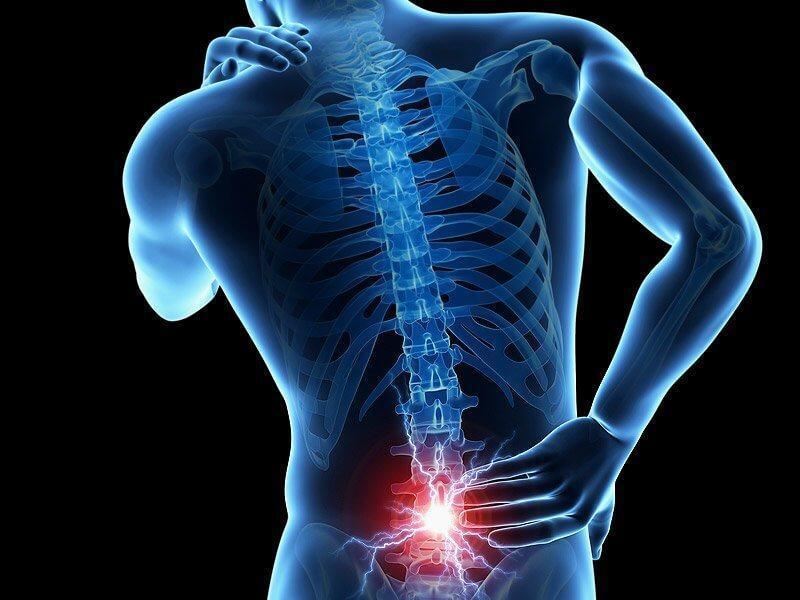Nerve pain, also known as neuropathic pain, can be a challenging condition to identify and manage. Distinguishing between nerve pain and other types of pain is crucial for effective treatment. Understanding the symptoms, causes, and diagnostic methods for nerve pain is essential for accurate diagnosis and targeted therapy. In this article, we delve into the intricacies of nerve pain, exploring how to differentiate it from other types of pain, the common symptoms to watch for, diagnostic tests that can pinpoint its origin, various treatment options available, and when to seek medical help. Additionally, we provide insights into lifestyle modifications and preventive measures that can aid in managing and potentially avoiding nerve pain altogether.
Understanding Nerve Pain
Definition of Nerve Pain
Nerve pain, also known as neuropathic pain, is a type of pain that arises from damage or dysfunction in the nervous system. It can be sharp, shooting, burning, or tingling in nature.
Causes of Nerve Pain
neuropathy can be caused by various conditions such as diabetes, nerve compression, infections, injuries, or neurological diseases. It occurs when nerves are unable to transmit signals properly due to damage or irritation.
Common Symptoms of Nerve Pain
Sensory Symptoms
Sensory symptoms of neuropathy may include tingling, numbness, hypersensitivity to touch, or a sensation of pins and needles. These sensations can occur in specific areas or radiate along the nerve pathway.
Motor Symptoms
Motor symptoms may involve weakness, muscle atrophy, or impaired coordination in the affected area. Nerve damage can disrupt the communication between the brain and muscles, leading to motor problems.
Autonomic Symptoms
Autonomic symptoms of nerve pain affect involuntary functions such as blood pressure, heart rate, or sweating. These symptoms can manifest as changes in skin color, temperature, or excessive sweating in the affected region.
Differentiating Nerve Pain from Other Types of Pain
Characteristics of Nerve Pain
neuropathy is often described as shooting, stabbing, burning, or electric shock-like sensations. It may follow a specific nerve pathway and be accompanied by sensory changes.
Comparison with Musculoskeletal Pain
Musculoskeletal pain is typically related to muscles, bones, or joints and is often described as dull, aching, or throbbing. It tends to be localized to a specific area and can worsen with movement or pressure.
Distinguishing from Vascular Pain
Vascular pain originates from blood vessels and is commonly associated with conditions like peripheral artery disease or deep vein thrombosis. It may present as cramping, throbbing, or aching sensations related to blood flow issues.
Diagnostic Tests for Identifying Nerve Pain
Nerve Conduction Studies
Nerve conduction studies measure the speed and strength of electrical signals along nerves to assess nerve damage or dysfunction. This test helps identify the location and severity of nerve involvement.
Electromyography
Electromyography evaluates the electrical activity in muscles to detect nerve abnormalities. It can help differentiate between nerve and muscle-related conditions by pinpointing the source of symptoms.
Imaging Tests
Imaging tests such as MRIs or CT scans can visualize anatomical structures like nerves, spinal cord, or brain to identify potential sources of neuropathy. These tests provide detailed images for accurate diagnosis and treatment planning.
Treatment Options for Nerve Pain
neuropathy can be a real buzzkill, but fear not – there are ways to kick it to the curb.
Medications
Sometimes popping a pill can be just what the doctor ordered. Medications like antidepressants, anticonvulsants, and painkillers can help dial down the volume on neuropathy.
Physical Therapy
Get your body moving and grooving with physical therapy. Stretching, strengthening, and nerve gliding exercises can help ease neuropathy and get you back to doing the things you love.
Interventional Procedures
When things get serious, it’s time to bring in the big guns. Interventional procedures like nerve blocks, epidural injections, and nerve stimulation can target the source of the pain and provide sweet relief.
When to Seek Medical Help for Nerve Pain
A little neuropathy is normal, but when it becomes a royal pain in the neck (literally), it’s time to call in the experts.
Red Flags to Watch For
If your neuropathy is playing dirty – think weakness, numbness, or trouble controlling your bladder – it’s time to hit the panic button and seek medical help pronto.
Seeking Specialist Consultation
When in doubt, shout it out to a specialist. Neurologists, pain management doctors, and physical therapists can help crack the code on your neuropathy and get you on the road to recovery.
Lifestyle Changes to Manage Nerve Pain
Don’t let nerve pain cramp your style. A few tweaks here and there can make all the difference.
Diet and Nutrition
You are what you eat, so eat like a boss. Foods rich in antioxidants, omega-3 fatty acids, and vitamins can help reduce inflammation and soothe those frazzled nerves.
Exercise and Activity Modifications
Move it or lose it, baby. Gentle exercises like yoga, tai chi, and swimming can keep those nerves happy and healthy. Just say no to extreme sports – your nerves will thank you later.
Stress Management Techniques
Stress is like kryptonite for neuropathy. Keep that stress monster at bay with relaxation techniques like deep breathing, meditation, and a good old-fashioned Netflix binge.
Tips for Preventing Nerve Pain
An ounce of prevention is worth a pound of cure. Here’s how to keep neuropathy at bay – because ain’t nobody got time for that. In conclusion, being able to distinguish neuropathy from other sources of discomfort is key to finding the most effective treatment plan. By recognizing the symptoms, seeking appropriate medical evaluation, and exploring various management strategies, individuals can better navigate the challenges posed by neuropathy and work towards improving their quality of life. Remember, early intervention and proactive lifestyle adjustments can play a significant role in alleviating neuropathy and promoting overall well-being.


